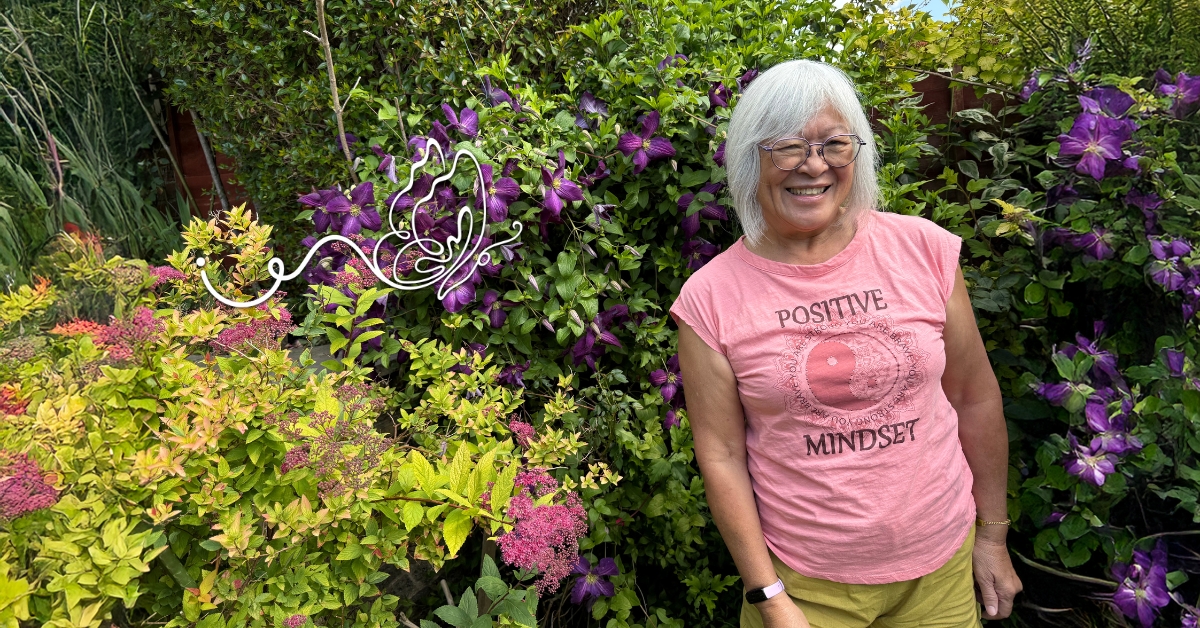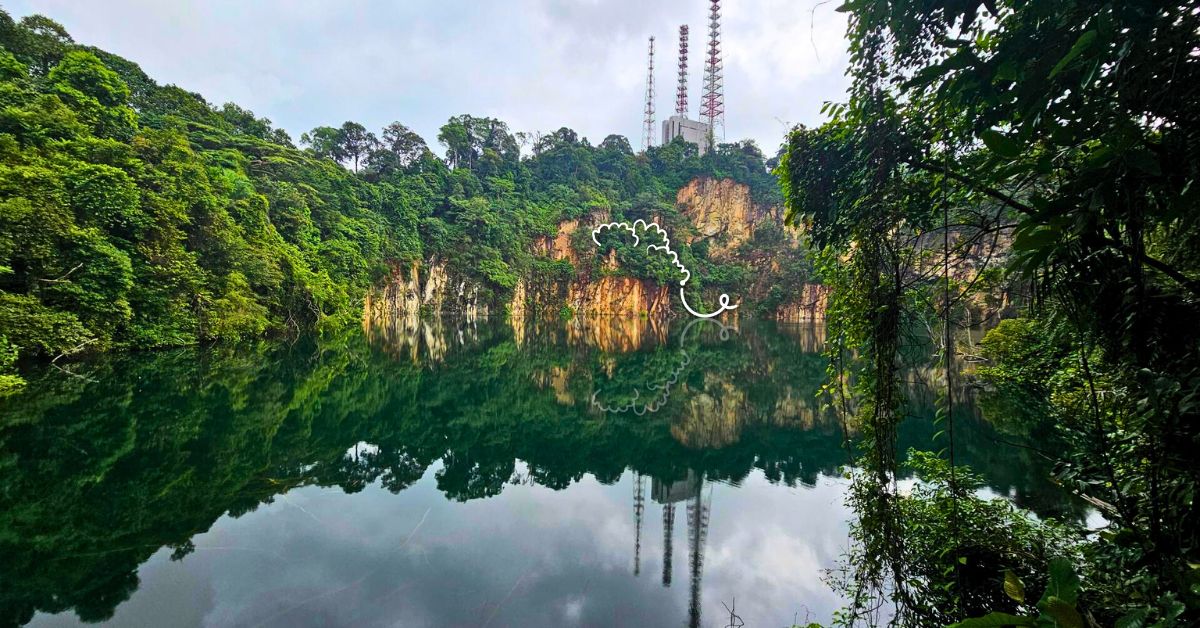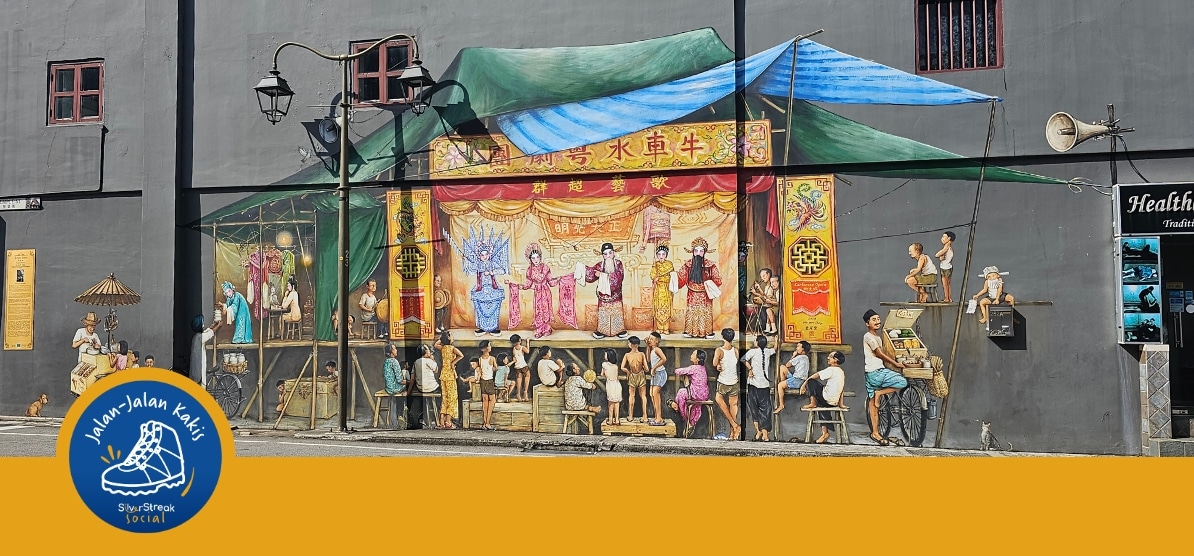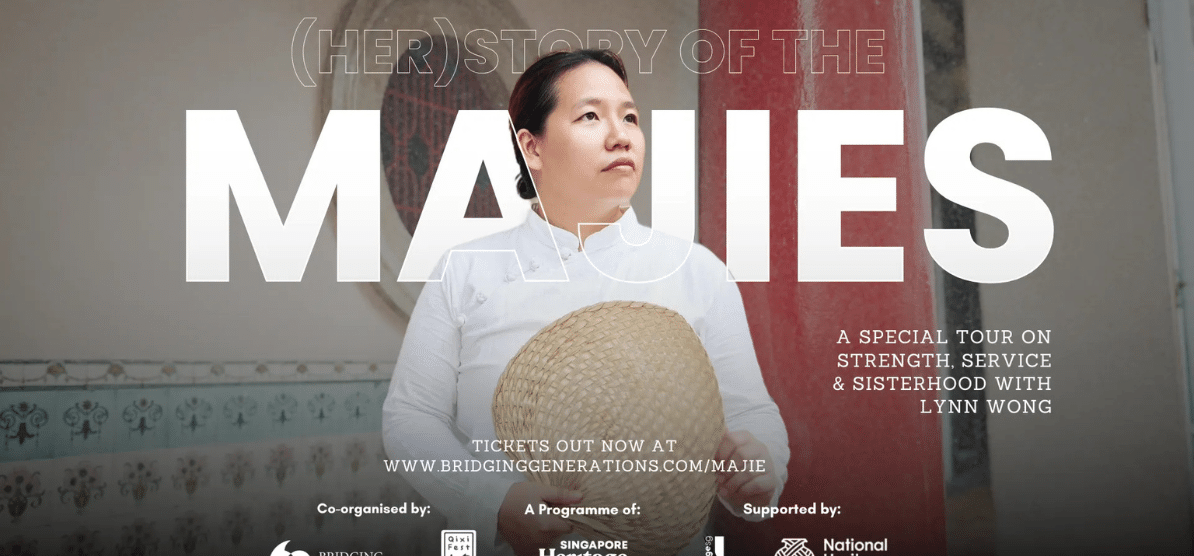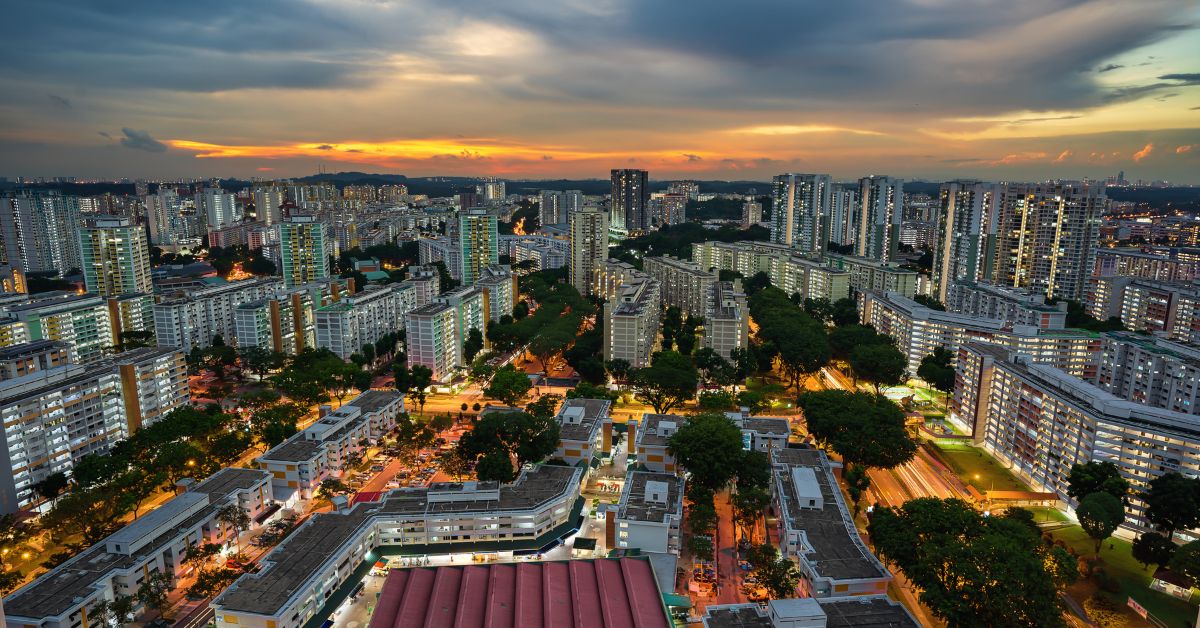
Ang Mo Kio today is remembered for its HDB flats and high property values.
But beyond this, there are 40 heritage sites and 10 heritage markers that are showcased in the recently refreshed Ang Mo Kio Heritage Trail.
The trail, which was originally launched in 2011 now features three newly curated thematic routes exploring Iconic Landmarks, Hidden Heartland Gems and Scenic Fringes.
Singer/songwriter Art Fazil grew up in what is now Ang Mo Kio.
He recalls a different way of life but has seen the area evolve into a thriving hub. He recalls his years spent in the once idyllic kampung with no name near the reservoir.
Advertisement
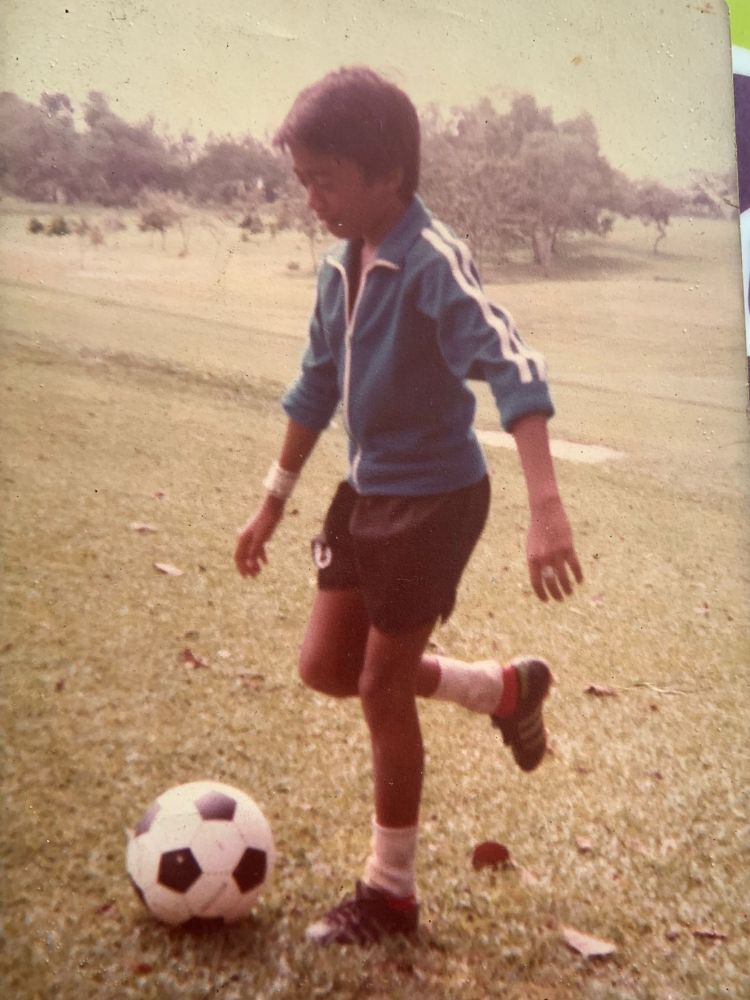
The Kallang River begins its course at the Lower Peirce Reservoir.
The huge drain the Malays call “puangan” is where the overflow of the water from the reservoir is channelled to before making its way into Kallang River.
I grew up in a little unnamed village that runs parallel to the puangan.
Our home address was 1420 Upper Thomson Road. It was also referred to as 6 1/2 mile.
The village I grew up in was divided into two halves.
On the outer part was the living quarters of the workers from the Public Utilities Board (PUB) who mainly worked at the Upper and Lower Peirce reservoirs.
They were all Malay families. The inner part were quarters for workers of the Singapore Island Country Club (SICC). The residents were mainly Hainanese and Malays.
My neighbours in our no-name village were the Lim family and the Foo family.
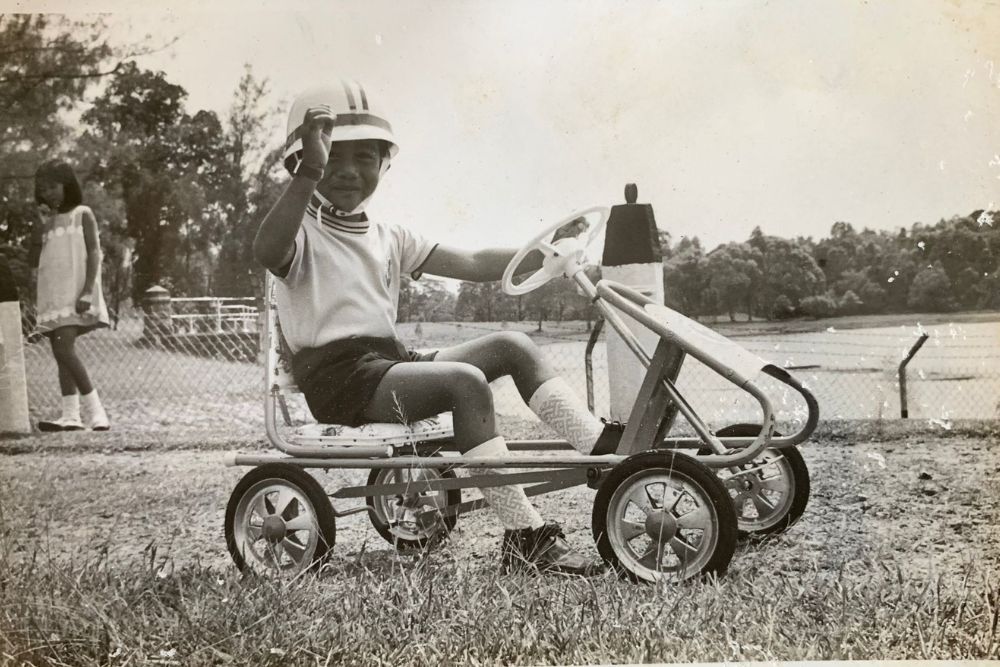
We lived there because our maternal grandfather worked for SICC.
The house was a rather huge house and it accommodated my aunties, uncles and cousins.
From time to time a new room was constructed to accommodate the growing families.
In total by 1979 there were 10 people or so living in the rather large zinc roof house that included my parents and younger brother, my grandparents, 4 aunts, 2 uncles and a couple of cousins.
From time to time, cousins from Johor stayed there too.
The small road that leads into the village is still there. You can see it on the left side of the road as you approach the intersection of Ang Mo Kio Avenue 1, Upper Thomson Road and the Old Upper Thomson Road.
Our kampong was separated by Upper Thomson Road from an area called Oh Kio by the Hokkien community. Oh Kio is now the area that covers the area between Kiew Lee Tong temple and Peirce Secondary School.
I went to the kindergarten in Oh Kio where I had to walk past rows of houses, workshops and provision stores. My kindergarten was at the end of the path as we walk past a Taoist temple.
There was a Hainanese coffee shop right at the edge where Bishan Park begins. They served roti bakar toasted on charcoal grill. It’s all gone now. Only the Kiew Lee Tong temple on the main road is still standing.
Where the Ang Mo Kio Bishan Park is now there was an empty space which became an entertainment spot for a month usually in June and December.
As I recall it was opposite block 244 on Ang Mo Kio Avenue 1. We call it the Fun Fair. We had to pay a few cents for tickets to get in.
I went to the fun fair with my aunties and cousins. Sometimes I also went with other children from the neighbourhood chaperoned by an older sibling or an aunt.
The fair had games where you play to win items like balls and dolls. There were also snacks, like cotton candy.
Above all the thing that excited me most was a wooden make shift stage where a band played. I don’t know what songs they played but it was loud and exciting to a 10-year-old boy.
I recall standing at the bottom of the stage and looking in awe at the performing musicians.
There were also dancers on stage. Men would buy tickets to dance with the dancing girls employed by the entertainment company that provided the band.
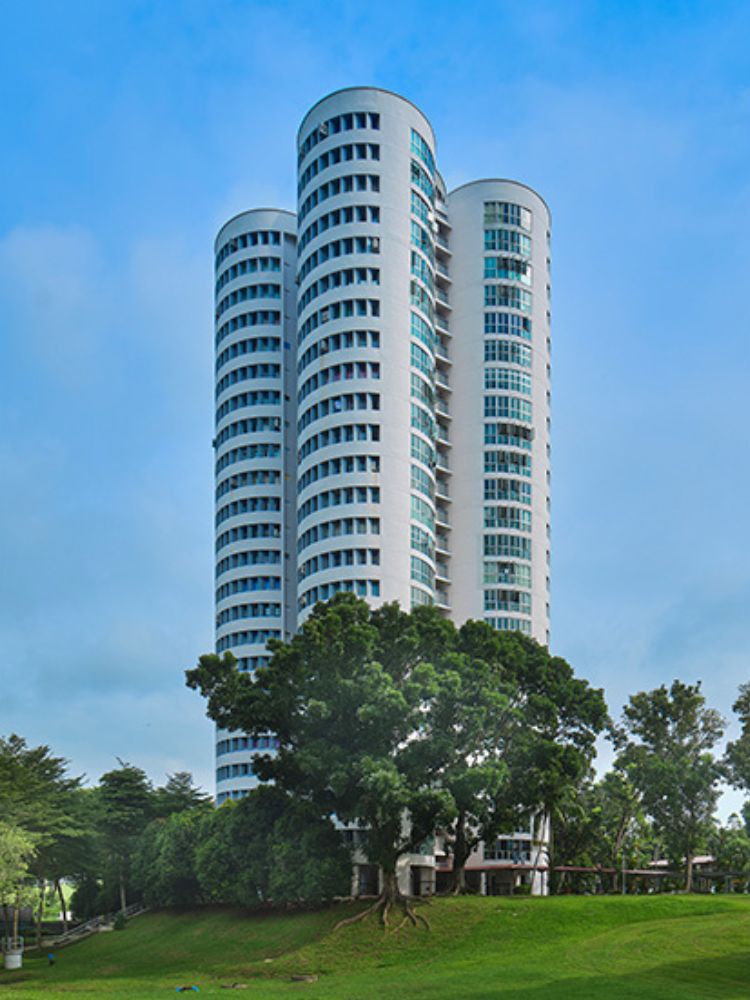
This was at a time before the Clover flats were there. In fact, I saw the Clover flats being built.
It was an awe-inspiring sight as there weren’t that many tall buildings in the area at that time.
The rounded shape of the building was also a novelty for me.
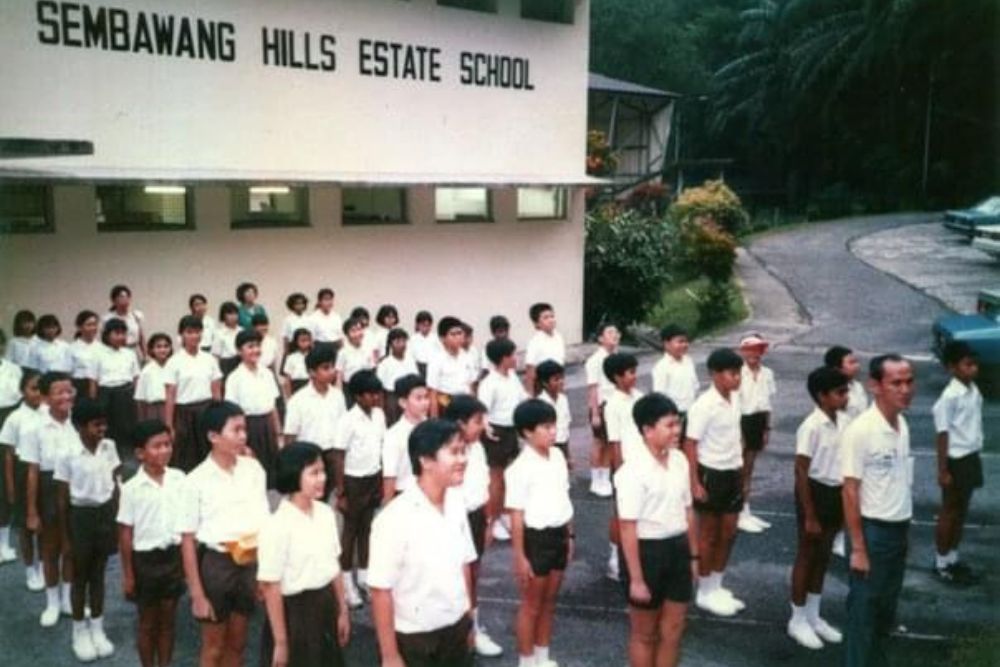
My primary school education at was Sembawang Hills Estate School.
I remember as a child the school bus would pick me up from the kampong and it would go into the newly built Ang Mo Kio housing estate, picking up students living at Mayflower Estate.
We repeated the process in reverse after school was over.
I remember seeing the red soil with piling machines and tractors. I heard piling machines banging on the ground as they plant seeds of urban development that were to become Ang Mo Kio housing estate.
The other part of the journey home on the school bus was a little detour into Teachers’ Housing Estate off Yio Chu Kang Road. A number of my friends from school lived there.
My primary school was on the lower half of the Old Upper Thomson Road. The upper half was where the Grand Prix was held.
I remember watching the Grand Prix with my father. He knew the short cut into the forest so we didn’t have to buy tickets to watch the race.
Walking into the forest became quite a regular thing for me later on because from my school to my kampong there was a short cut through the forest which takes me to Lower Peirce Reservoir and from then on about another kilometre to my house.
Today there is a wooden plank foot path built on that route.
If I stayed back in school, it was usually just malingering i.e. playing football on the basketball court using a tennis ball.
I would walk home which was a straight road down about 4 bus stops away. But I prefer the forest short cut route. It gave me a great sense of adventure.
In those days, unlike today we could hardly see any wild boars. The macaque monkeys were mostly on tree branches. These days the monkeys can be seen foraging for food in park bins and they are known to go into houses at Sembawang Hills Estate.
Then, in 1980, our family moved out of the nameless kampong by the edge of the reservoir into a three-bedroom flat at Block 602 Ang Mo Kio Avenue 5.
The entire nameless kampong was eventually torn down by 1981. Where the village was is now a store for maintenance equipment for the golf course, belonging to the SICC.
It’s been 43 years since I moved from the kampong house to Ang Mo Kio.
Change is inevitable, I understand, but it’s also good to be able to remember some of the past; both for those who’ve lived through it and those who are new to it.
It offers a sense of perspective in terms of how the changes have been made to create something better.
The changes in the area I grew up in have been dramatic.
Where the village I grew up I in was, there now stands an equipment store. The empty land where the fun fair was is now a park.
I have lived in Malaysia for some time and spent a good number of years in London.
But I still go back to my childhood haunts from time to time.
I have fond memories of the places I mentioned above. It’s part of my childhood and teenage years. It reminds me of who and what I am.
In the ’80s, I cycled around the Ang Mo Kio heritage trail on a BMX bicycle. These days it’s on a foldable bike.
I am glad that in spite of the development in the area, many of the places on the heritage trail are still recognisable to me.
I am building new memories each time I go back there.
Ang Mo Kio Heritage Trail - Iconic Landmarks

